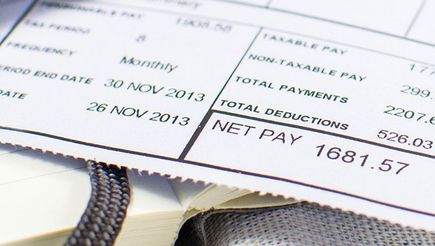If you're a tradesman, it's likely that a sizeable portion of your day is spent driving between jobs in your van. And although prices have seen a steep drop in recent months, the cost of fuel can still put a dent in your profit margins.
However, there are now green motoring schemes springing up across the UK that could help you to cut down your travel costs – here's a quick overview of some schemes you might consider.
Local grants and schemes
With councils, central government and public-private partnerships all looking at ways to encourage green motoring and build eco-industries, local grants and subsidies are appearing across the country. A prime example is South Yorkshire’s Inmotion! scheme, which offers government-backed plug-in vehicle grants of up to £10,500 to eligible local businesses.
That's already a big chunk towards a new van, but green schemes are also about cost savings in the long term. Comparing a leased VW BlueMotion Golf to a Nissan Leaf, Inmotion! estimates savings of 38.52% (PDF) over a 48-month lease period. These savings are made up of reduced fuel costs (£2.49 saved per gallon), reduced employer's National Insurance contributions, lower financing costs on the lease, and eliminating the cost of road tax.
Of course, it's worth remembering that these figures depend on time-specific details. Petrol costs are announced at the pump, but with electric vehicles (EVs) the price comes from average electricity prices. Inmotion! used a price of 11p/kWh, but make sure you know what your supplier offers before taking stats at face value.
We also recommend double-checking that claims about tax savings and finance rates still apply, and that there are enough easily accessible charge points locally to keep you moving if you do decide to go green.
Improving driving habits
Even if you’re not ready to start driving an electric vehicle just yet, there are still eco-initiatives that could save you money. Eco-Business Driving, for example, aims to help businesses save money by teaching driving and maintenance techniques that can cut fuel and service costs. Construction and infrastructure business Amey is one organisation that has taken advantage of the scheme, and it reports fuel savings of between 10 and 15%.
Durham County Council reports even higher savings, with 400 individuals who have taken part in their council-led driver training scheme making an average saving of 17% on fuel costs.
It’s not just about tips to reduce the strain on your engine (and your carbon footprint), though. As eco-safe driving is all about maintaining a steady speed, avoiding harsh acceleration and braking, and planning and anticipating early, it can also help to prevent accidents – avoiding claims on your van insurance, as well as incidental costs like lost productivity, extra management time, and staff absence.
So what’s your view? Are eco-driving schemes the next step for your trades business? Or are you sticking with your trusty traditional van? Have your say in the comments below.
*The schemes detailed within this article are for information purposes only and are not endorsed by or affiliated with AXA Insurance UK plc






